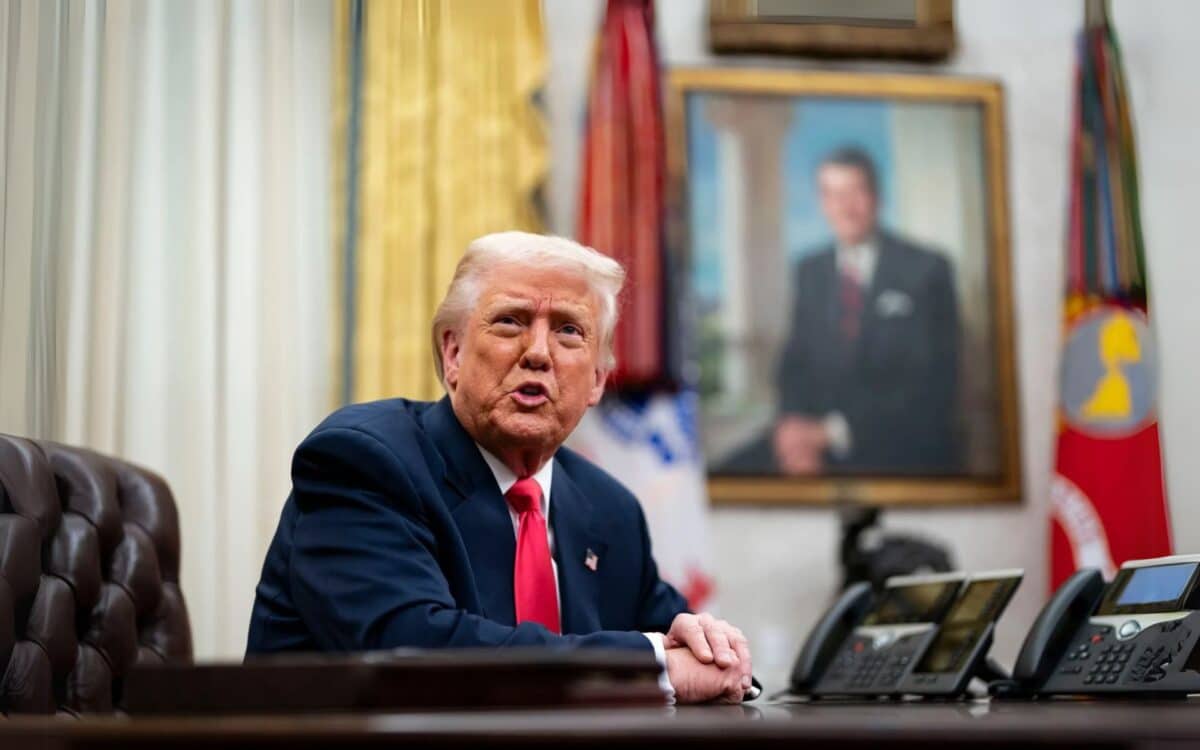The global economy is facing mounting pressure as the ripple effects of President Donald Trump’s shifting tariff policies wreak havoc on stock markets and investor confidence. According to News, the Australian share market dropped to its lowest point in six months, following a sharp decline in major US indices.
This market turmoil has raised concerns about the broader economic impact, with analysts warning that the uncertainty surrounding trade policies could lead to further slowdowns, potentially affecting global growth and stability.
Global stock markets suffer significant losses
On Friday, the Australian stock market fell nearly 1.6%, dipping below 8000 points for the first time since September. This followed a similarly negative trend in the US, where all major indices spent the day in the red.
Despite a temporary rollback on tariffs targeting Canada and Mexico, stocks continued their downward trajectory. The S&P 500 and the Nasdaq both dropped by significant margins, with the Nasdaq entering correction territory, signalling a broader market downturn.
The S&P 500 fell 1.8%, the Dow Jones dropped 1%, and the Nasdaq Composite saw a loss of 2.6%, dropping more than 10% from its 16 December high.
As tariff announcements and reversals continue, economic experts are voicing concerns about the long-term impacts on consumer sentiment and business investment. Art Hogan from B. Riley Wealth Management stated that the ongoing uncertainty surrounding trade policies is affecting the real economy.
“The longer that goes on, the more the economy slows,” he said. As tariffs push businesses to rethink their strategies, there are growing fears that economic growth may slow further.
In response to the economic uncertainty, bond yields have risen, reflecting expectations of higher inflation. Japanese 10-year yields, for example, reached 1.5%—the highest level in over a decade.
This increase suggests that governments, businesses, and consumers may face higher borrowing costs in the near future, potentially contributing to inflationary pressures. Analysts view this rise in bond yields as an indicator of market expectations of higher inflation in the months ahead.
Trump’s decision to delay certain tariffs brings mixed reactions
While Trump announced a temporary delay on tariffs for certain sectors, such as the auto industry, the move has had mixed reactions. The delay was initially seen as a positive step for Asian stock markets, particularly the auto sector.
However, the uncertainty remains, as the President has promised further decisions by 2 April. The market is left in a state of anticipation, unsure of whether this temporary reprieve will lead to a more permanent shift in trade policy.
Following discussions with the “Big Three” automakers—Stellantis, Ford, and General Motors—Trump decided to grant a one-month exemption on autos under the United States-Mexico-Canada Agreement (USMCA).
This delay, which lasts until 2 April, was welcomed by investors, especially in the auto sector.
The President also made a statement saying that his decision was “much more favourable for our American car manufacturers.” However, he also emphasised that more significant moves would be unveiled on 2 April, including the imposition of “reciprocal tariffs” aimed at addressing what Washington perceives as unfair trade practices.
In response, Canada announced it would delay imposing a second wave of tariffs on $125 billion in US goods until 2 April, in line with the ongoing negotiations. Dominic LeBlanc, Canada’s Finance Minister, confirmed on X:
“Canada will not proceed with the second wave of tariffs on $125B of US products until April 2nd, while we continue to work for the removal of all tariffs.”
Many economists have pointed out the disruptive nature of tariffs, particularly as they impact supply chains and increase costs for consumers. Scott Lincicome from the Cato Institute remarked that Trump’s temporary tariff easing is likely a recognition of the economic reality that tariffs harm trade and disrupt global supply chains.
The market doesn’t like them and certainly doesn’t like the uncertainty surrounding them, – Lincicome said
While the President has repeatedly defended tariffs as a solution to trade imbalances, the economic consequences are becoming increasingly clear. These policies are not only causing turmoil in financial markets but also potentially dampening long-term economic growth.









